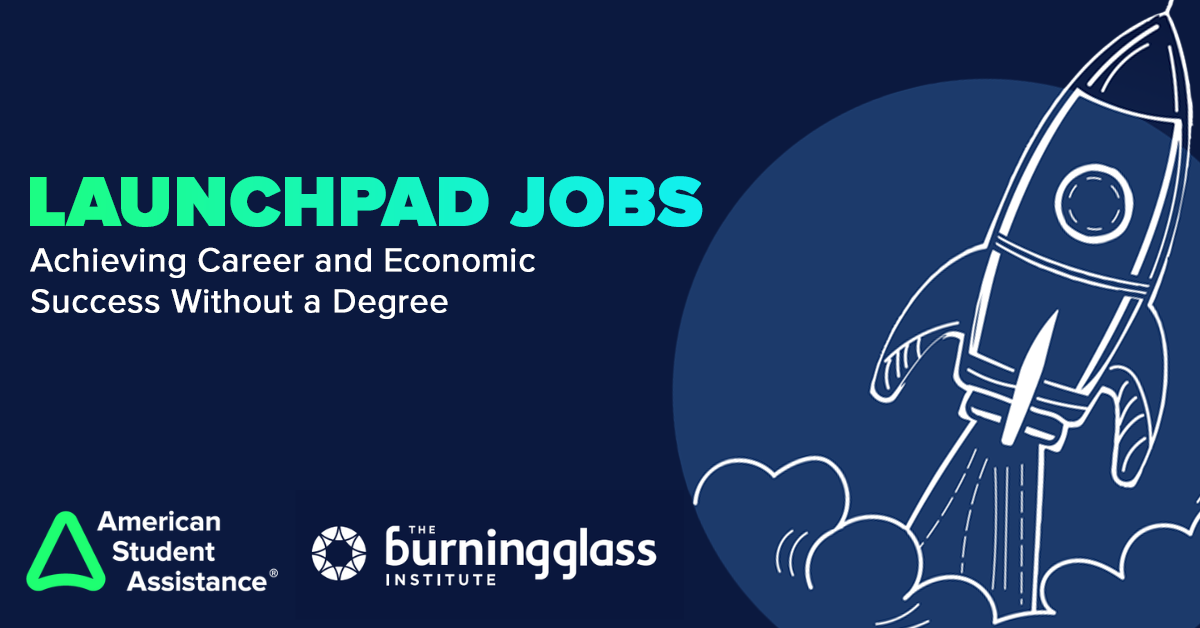An intermediary is an organization or entity that facilitates collaboration between educational institutions, aspiring workers, and industry partners, ensuring smooth work-based learning opportunities can be developed and scaled for more people and in more communities. Intermediaries are well-known in the apprenticeship world, where businesses often need a helping hand getting an apprenticeship program up and running. How exactly do they help, and how do they ensure emerging professionals and businesses alike have the resources they need to thrive in the work-based learning context? To find out, Shawnee Caruthers of Getting Smart moderated a panel at ASU+GSV, joined by Lynn Moody of SparkNC, Danny Martin of Esposure Inc., and Kimberly Mahan of Maxx Potential.
Intermediaries are the behind-the-scenes experts of work-based learning. They help businesses and aspiring workers alike (youth or adult) realize their goals. From the business perspective, that goal is often building a stronger hiring pipeline through “earn-while-you-learn” models like apprenticeship, at a time when not enough entry-level workers possess the skills needed to hit the ground running. From the professional’s perspective, the goal is usually exploring or launching a career in a competitive industry–like IT, for example—where work experience seems to be more valuable than gold.
Intermediaries work in a wide variety of ways with schools, employers, governments and other organizations to facilitate work-based learning. Broadly speaking, the intermediary typically steps in to help design or even manage a program, broker relationships between aspiring professionals and businesses, and help organizations overcome any red tape they may experience. However, they often offer coaching, skills development, learning opportunities, and professional support to new or aspiring professionals. Sometimes they even vet candidates and manage the recruitment process. The intermediary’s work is vitally important. Because, while work-based learning is (thankfully) becoming more prevalent in businesses around the country, the programs themselves are often challenging to build and scale, and this can be particularly true when building programs for youth. So, what are the panelists’ organizations up to and how are they helping more people and businesses bridge the gap?
SparkNC is “igniting futures in tech” by empowering students to discover careers in fields like cybersecurity and AI. They help schools move away from traditional scheduling in favor of scenarios where students have the power to choose what, where, and how they learn, and in favor of a landscape where educators have the flexibility to deliver engaging instruction to students across the whole state.
“We want to give information and a network to leverage to all students. We want students to see themselves in these careers, and we want to take away the risk of failure for them.”
Esposure helps scholars who aspire to work in diverse careers like professional gamer, team coach, content creator, or esports business professional. Their programs and courses let aspiring professionals build on their knowledge through hands-on learning experiences, and gain proficiency in real-world settings. For example, their six-week esports Business Plan Competition is geared towards those interested in digital careers, who work together to complete projects and assignments. Participants gain exposure to industry professionals along the way, while building a portfolio.
“For us, it’s about the mission of engaging with students in regards to things they are passionate about.”
Maxx Potential has dedicated “a space for individuals to grow and harness their technical skills,” and in doing so, is “changing the landscape of the IT industry.” They help managed service providers (their clients) tap into a wider IT talent pool than they would otherwise have access to, while helping job-seekers find opportunities that might otherwise elude them.
“From the beginning we were blown away, because half of the people showing up already had degrees. So we got people showing up for an apprenticeship program who had already paid for a degree, but were still looking for a way to break into [the sector] through work-based learning.”
To hear more from these intermediaries, you can watch the full panel discussion here.



